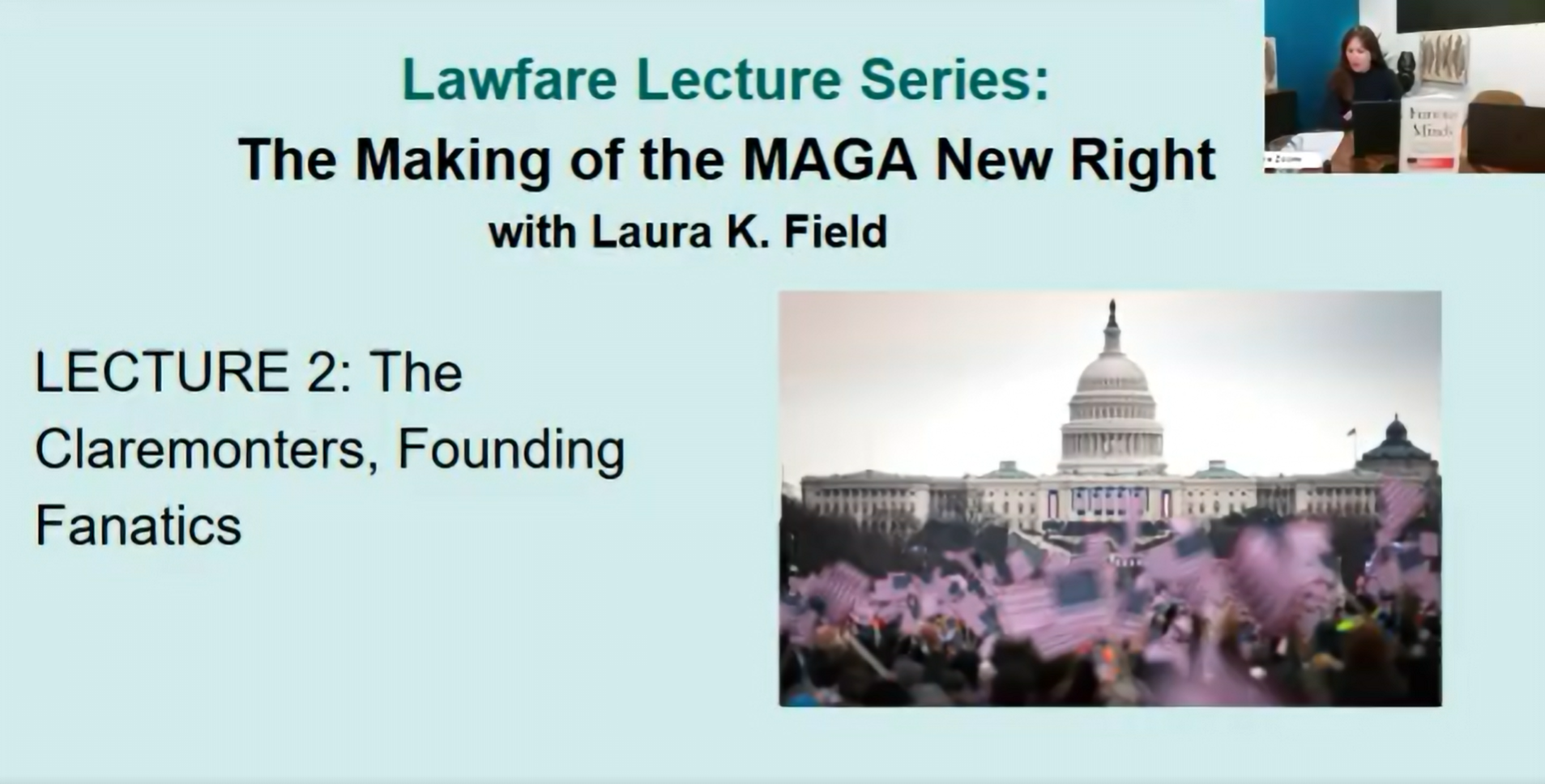The Week That Was: All of Lawfare in One Post
Robert Chesney and Steve Vladeck examined if there was a coherent middle ground in the Apple vs. FBI All Writs Act dispute.
Cody Poplin flagged DOJ’s motion to postpone its hearing on the San Bernardino iPhone.
Herb Lin commented on the spin surrounding the FBI's motion to postpone its court confrontation with Apple.
Susan Hennessey and Benjamin Wittes stated that the possible tool to unlock the iPhone means something...or nothing at all.
Paul Rosenzweig told us who is helping the FBI crack the iPhone.
Benjamin Wittes featured the digital age’s definition of “chutzpah” in regards to the FBI vs. Apple dispute: Apple's apparent belief that the bureau should disclose the vulnerability it seems to have found.
Susan Hennessey wrote a series on why the NSA is not the “going dark” solution. In part one, she said that Richard Clarke is dead wrong to say thar it is. In part two, she asserted that the NSA does cryptography, not magic, and imagined a world in which the agency really couldn't unlock an iPhone. And in part three, Susan explained that even if the NSA could unlock the iPhone, the agency is still bound by both the laws of math and engineering, as well as the practical limitations of the discipline.
Susan Landau responded.
After the Brussels attacks, Carrie Cordero asserted that something is going wrong with international counterterrorism efforts.
Timothy Edgar advocated for a “9/11 style” commission for Europe to review its counterterrorism policies.
Dan Byman told us what the Brussels attacks mean for the state of the Islamic State and Europe.
Elena Chachko commented on the Israeli Supreme Court debates on counterterrorism home demolitions.
Cody Poplin linked to the House Foreign Affairs Committee’s hearing on the Obama administration’s plan to close Guantanamo.
Paul Rosenzweig warned us to proceed with caution in regards to the ICANN and the IANA transition. He also argued that DHS’s National Protection and Programs Directorate should take a more operational role in cyber protection of government and civilian networks and that its cyber protective functions should merge with its physical ones.
Stewart Baker released the newest edition of the Steptoe Cyberlaw Podcast showcasing an interview with Phil Reitinger.
He also released another edition of the Steptoe Cyberlaw Podcast highlighting an interview with Adam Segal.
Cody Poplin shared the latest edition of the Lawfare Podcast featuring last week’s Hoover Book Soiree with General Michael Hayden discussing his new book, Playing to the Edge: American Intelligence in the Age of Terror.
Julian Ku asked if the Nine-Dash Line is a super-sized economic zone in the South China Sea.
Zack Bluestone and Chris Mirasola released the latest edition of Water Wars highlighting that in the South China Sea, China faces twin threats of a U.S. military presence and pushback from an old friend.
Benjamin Wittes debuted the latest version of Rational Security: the “I Don’t Want People to Go Around Thinking I Have a Problem” edition.
In Sunday’s Foreign Policy Essay, Adam Saxton argued that autonomous weapons post ethical issues in the conduct of warfare, but often the arguments for or against them caricature the weapons and misunderstand their actual use.
Ellen Scholl provided us the latest version of her series Hot Commodities looking at dropping bombs in oil market terms.
Finally, Susan Hennessey released the newest paper in the Lawfare Research Paper Series: "International Signals Intelligence Law: Provisions and History" by Tony Rutkowski.
And that was the week that was.



.png?sfvrsn=bd249d6d_5)

